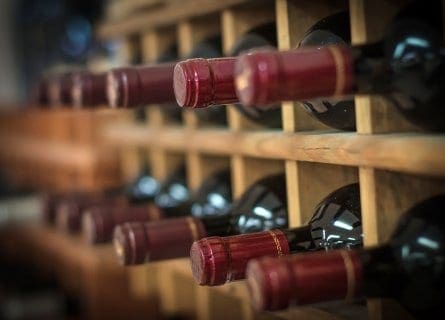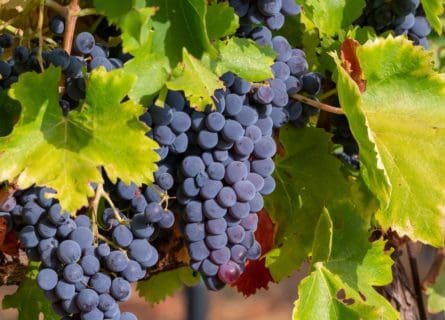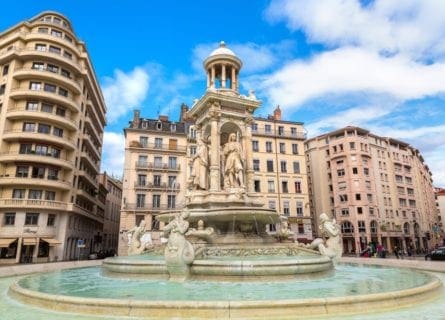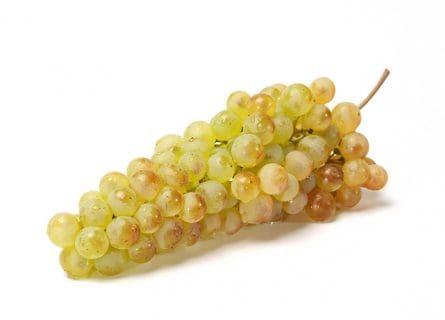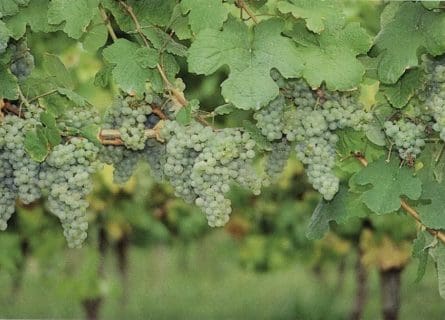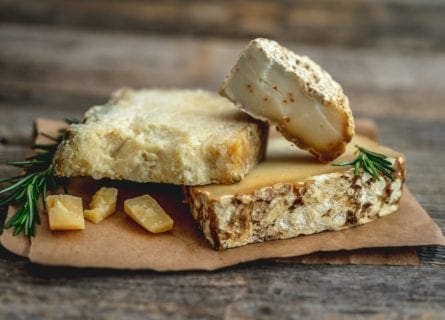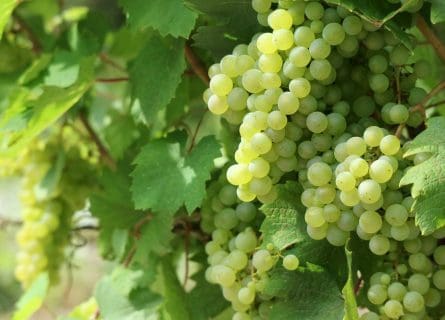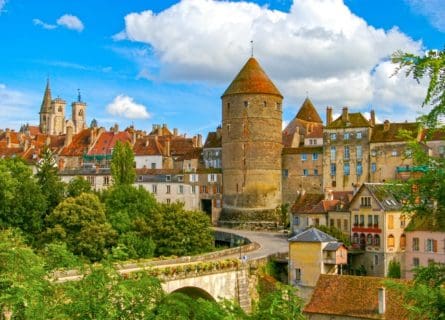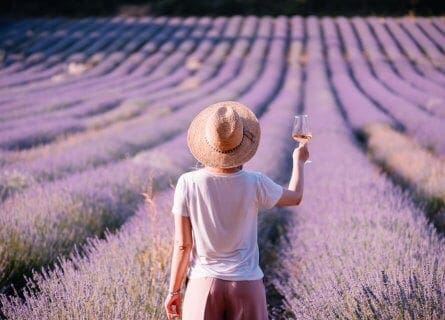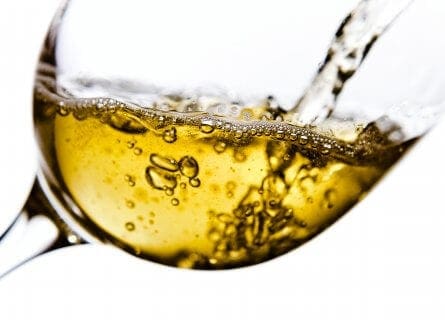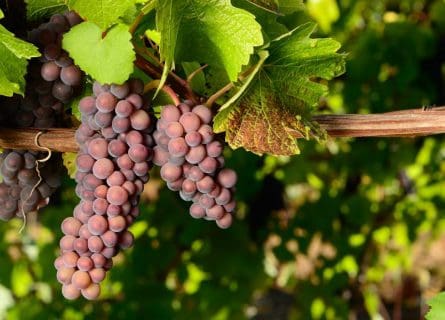Chateau Romanin Winery Guide
EXPLORE ALL OUR RECOMMENDED FRENCH WINERIES
Last updated: June 4, 2024
Winery Overview
If you’ll forgive the cliché, history and cutting-edge modernity come alive at Chateau Romanin. The marriage is like no other in Provence – Chateau Romanin is perhaps the most secluded estate in the region, hidden among the ruins of an ancient castle embedded in limestone crags of ancient origin. It was once the domaine of the Knights Templar; the land surrounding the Alpilles and Baux-de-Provence has been disputed, fought over, and claimed by rival factions for centuries. Since time immemorial, wine and olive oil have been made here, suggesting an intransigence and timeless quality to Chateau Romanin. Yet, they employ the latest equipment, 21st-century expertise, and viticultural practices far removed from the chemical-dependent mantra of the mid-20th century. At Chateau Romanin, you’ll encounter more than a few surprises and contradictions.
The land on which the modern-day chateau stands has been the center of European politics for over 2000 years. After the Romans lost control of western Europe in the 6th century AD, the Gauls fought many battles against rival factions, not least the Moors, who arrived in Andalucia In 711. Templar Knight Raymond de Gantelme founded the original chateau in Alpilles in the 13th century. The chateau hosted an important medieval court; knights from across Europe would come to pay homage to the wisdom of Gantelme. The intrepid knight also soon began wine and olive production, a legacy that has endured until today.
However, over the centuries, the chateau’s importance waned, and by the late 20th century, Romanin was in a sorry state of affairs. The buildings were crumbling, investment was lacking, and the vineyards were woefully neglected. But in 1988, a local investor saw the potential for Romanin to return to its glory days and bought the decrepit chateau. Architect Serge Hennemann took on the project on behalf of the owner of several restaurants in Provence. Following a substantial investment of time and money, a new underground winery was built in 1992. Embodying a gothic cathedral’s shape and design structure, the winery is now one of Provence’s most spectacular and famous.
Hennemann achieved wonders but felt it was time to move on to new projects in 2006, so he put the property on the market. It was purchased by the former owners of Chateau Montrose – a leading estate in St-Estephe – Anne-Marie and Jean-Louis Charmolüe. They have continued pursuing Hennemann’s vision, expanding the vineyard and doggedly chasing excellence in viticulture and winemaking. Sadly, Jean-Louis has since died, but his former spouse is continuing their good work.
Today Romanin is as famous, if not more so, for its stunning architecture, history, and commanding views of the enchanting Provencal countryside. This is understandable, yet we should place its remarkable and terroir-driven wines at the heart of the matter. Biodynamic viticulture and winemaking at this estate are truly cutting edge – Romanin represents a paradigm that is rapidly finding favor worldwide; viticultural techniques emphasize flora and fauna biodiversity, with the minimum use of naturally-occurring chemicals and a ban on harmful synthetic inputs. This shines through in the range of white, rose, and red wines, all showing a purity of fruit expression, freshness, and elegance, which is not always encountered in Provencal winemaking. Winery owners often tout their ‘green’ credentials, sometimes without cause. But at Chateau Romanin, talk of biodiversity or sustainability isn’t just a marketing gimmick or cheap ploy; it’s the overarching philosophy that underpins every decision – and action – taken at this unique and hallowed estate.
Wines produced
-
Chateau Romanin La Coeur de Romanin
A varying blend of Syrah, Mourvedre, Grenache and Cabernet Sauvignon. Hand-harvested grapes are subjected to a gentle and prolonged fermentation. After malolactic fermentation has taken place, the wine is aged in a mixture of 225L barriques and larger barrels. Accessible on release, the wine will cellar for at least a decade. -
Chateau Romanin Les Baux de Provence Rose 2018
70% Grenache, 20% Cunoise, 10% Syrah. After a gentle and short maceration, the must is fermented in stainless steel tanks at a temperature between 18 and 20 ° C. The wine is then aged on its fine lees for typically 6 months, with regular lees-stirring (batonnages). Accessible on release. -
Chateau Romanin Les Baux de Provence white 2016
62% Rolle, 34% Roussane, 4% Clairette. After the grapes are hand-harvested, the must is fermented in stainless steel tanks at a temperature between 18 to 20° C. The wine is then aged on its fine lees for typically 5 months, with regular lees-stirring (batonnages). Accessible on release. -
Chateau Romanin Les Baux de Provence red 2014
A varying blend of Syrah, Mourvedre, Grenache and Cabernet Sauvignon. Hand-harvested grapes are fermented in a mixture of stainless steel tanks and large oak barrels, at a temperature of 24 ° to 26 ° depending on the grape variety. The wine is then aged for 18 months in large wooden barrels before release. -
Chateau Romamin La Chapelle 2017
A varying blend of Syrah, Mourvedre, Grenache and Cabernet Sauvignon. Hand-harvested grapes are fermented in stainless steel tanks with the minimum amount of sulphur added. -
Chateau Romanin Alpilles IGP Rose 2019
37% Grenache, 26% Mourvèdre 22% Cabernet Sauvignon and 15% Counoise. After a gentle and short maceration, the must is fermented in stainless steel tanks at a temperature between 18 and 20 ° C. The wine is then aged on its fine lees for typically 6 months, with regular lees-stirring (batonnages). Accessible on release. -
Chateau Romanin Alpilles IGP Red 2016
55% Syrah, 20% Grenache, 17% Mourvèdre, 8% Cabernet Sauvignon. Hand-harvested grapes are fermented in stainless steel tanks and aged for a few months before bottling. -
Chateau Romanin Alpilles IGP White 2019
A varying blend of Rousanne and Vermentino. The wine is fermented using natural yeasts in stainless steel tanks.
Winery Contact Details
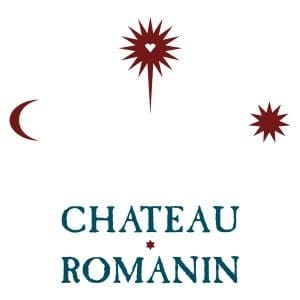
Chateau Romanin
Route de Cavaillon13210 Saint-Rémy-de-Provence
France
Email: accueil@ChateauRomanin.fr
Tel +33 (0) 4 90 92 69 57
Fax Find out more
Facts & Figures
Appellation
Les Baux de Provence
Founded
1988 (modern-day chateau)
Area under Vine
58 hectares planted (250 hectares total)
Age of vines
Oak barrel origin
French
Winemaker
Franck Breau
Owner
Anne-Marie Charmolue
Production
Grape varietals
Syrah, Mourvedre, Grenache, Cabernet Sauvignon, Cunoise, Vermentino, Roussane, Clairette
Grape Varieties Used by the Winery
-
Clairette
Savor Clairette blanche, a captivating white wine grape from France's Chateauneuf-du-Pape, Provence, Rhône, and Languedoc vineyards
Find out more -
Roussane
Learn about Roussanne, the elegant white grape native to Rhône. Often blended with Marsanne, explore its unique qualities and rich heritage in our guide.
Find out more -
Vermentino
Explore the Renaissance of Sardinian Vermentino: From Forgotten Grape to Crisp Elegance. Discover Now!
Find out more -
Cabernet Sauvignon
Discover the irresistible allure of Cabernet Sauvignon—a worldwide favorite with robust, dark-bodied flavor. Unleash your wine journey today!
Find out more -
Cunoise
The Cunoise grape is a captivating varietal known for its remarkable flavors and elegance. With its deep purple clusters, the grape reveals an enticing palate of dark berries, cherries, black currants, spices, and subtle floral undertones. It thrives in diverse climates, absorbing the essence of its surroundings to showcase the nuances of terroir.
-
Grenache
Discover grenache, a mediterranean grape that is dark-skinned red wine grape variety and an unlikely hero of a grape
Find out more -
Mourvedre
Mourvèdre is a red wine grape variety of mysterious origin that's grown around the world, including the Rhone and Provence regions of France.
Find out more -
Syrah
Syrah is dark-skinned and perhaps the most underrated of the 'noble' red grape varieties.
Find out more
Further Reading: Discover More Related Blog Content
More information
If you would like us to customize an exclusive luxury tour, contact us and let us know your travel plans. We offer luxury food and wine tours for private groups of a mininium two guests. In addition, all of our private, chauffeured tours are available year-round upon request.



